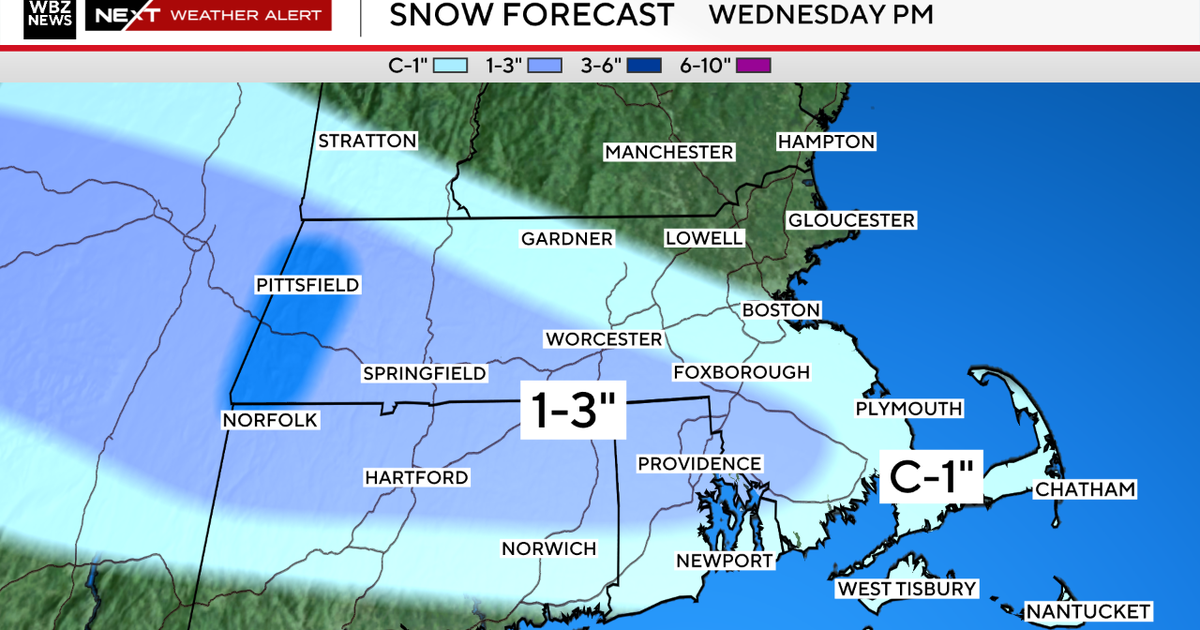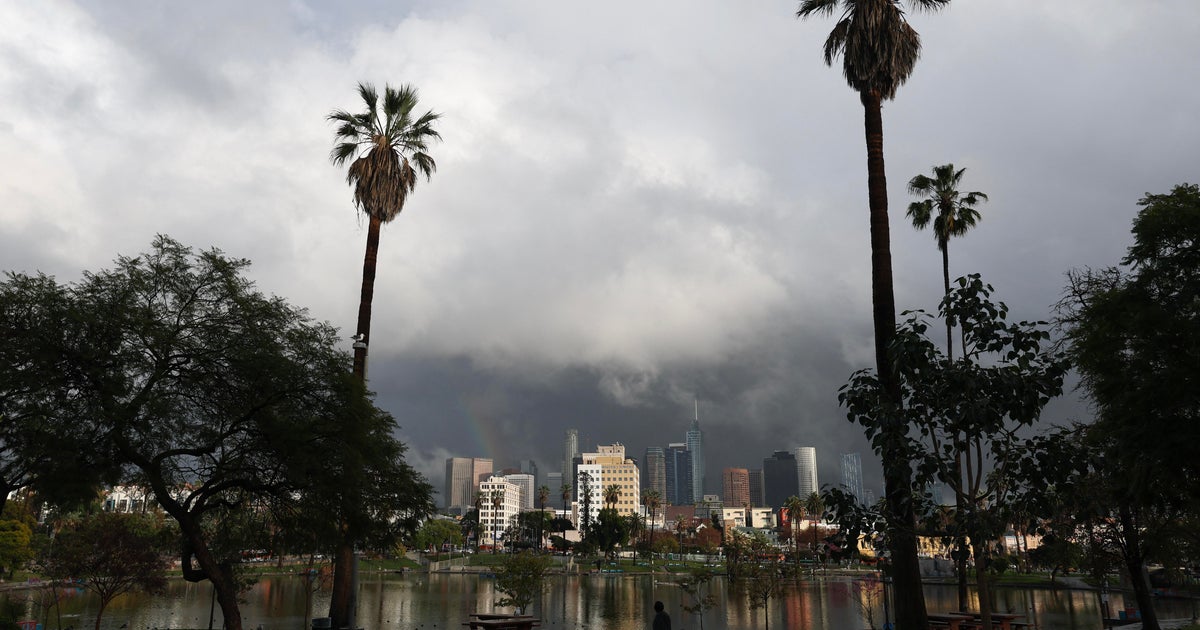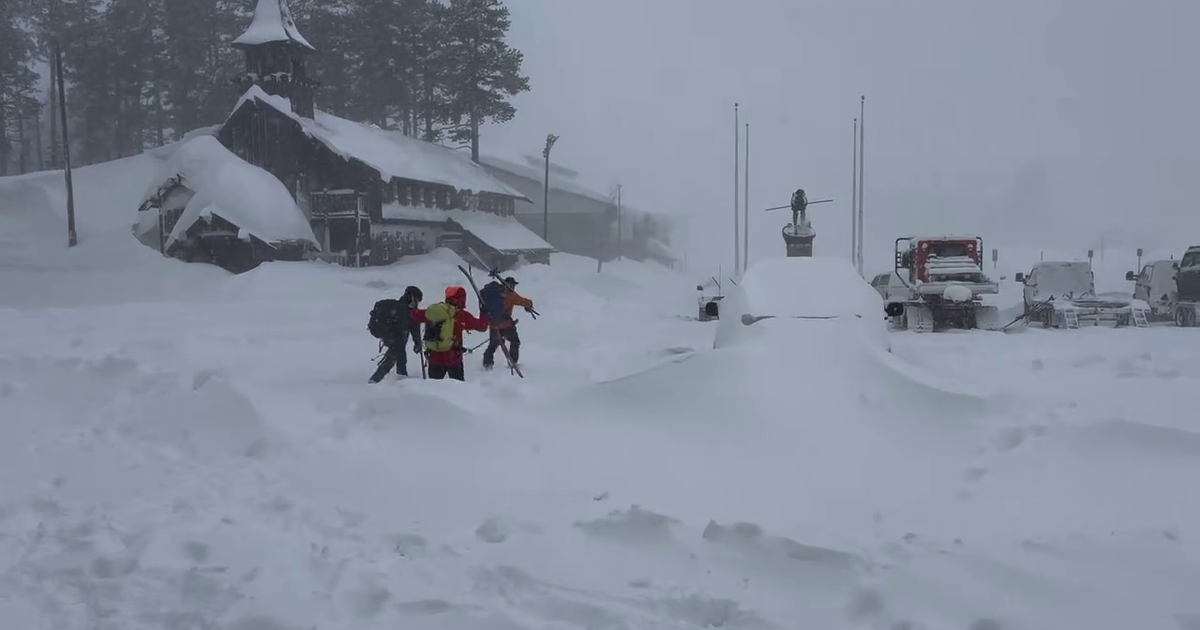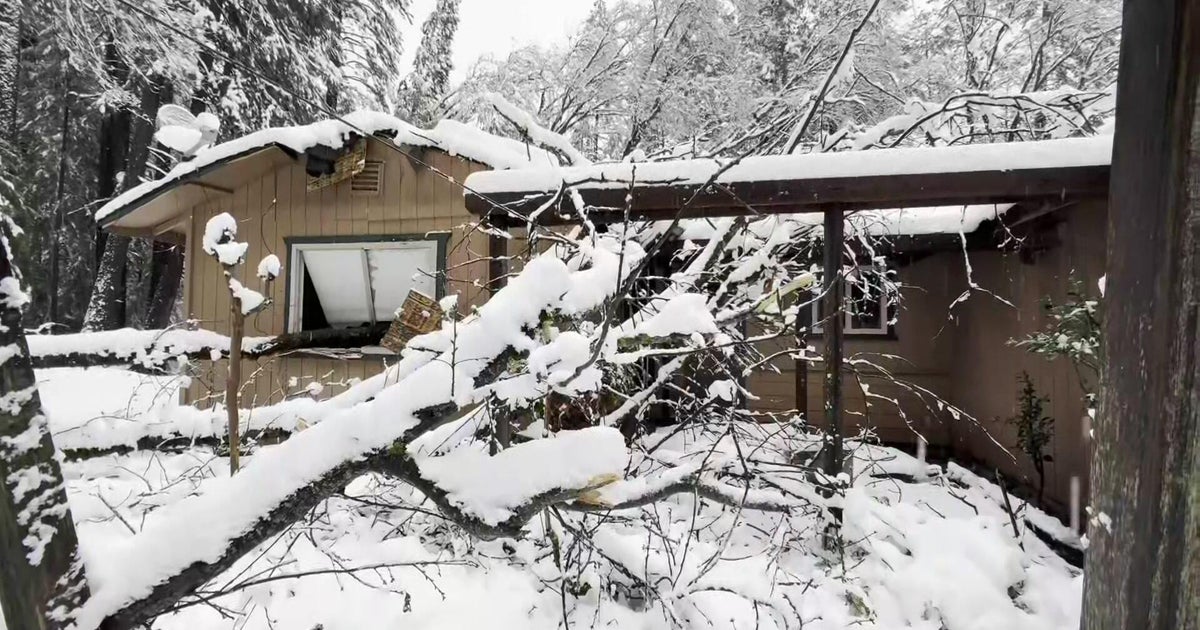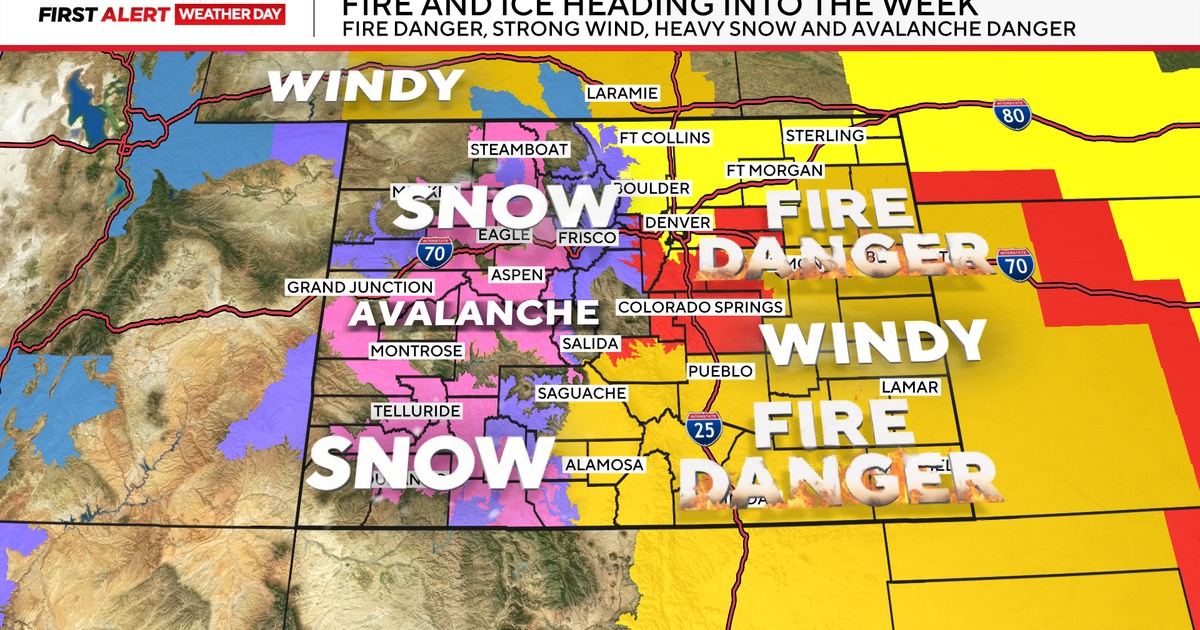Orionid meteor shower peaks Thursday night
By Terry Eliasen, WBZ-TV Meteorologist, Executive Weather Producer
BOSTON - Heads Up! Over the next few nights, we have the opportunity to see some "shooting stars" streaking across the nighttime sky!
The Orionid meteor shower will be peaking Thursday night. At their best, the Orionids typically produce between 10-20 meteors per hour...not bad!
So how do you see the show? Let's back up just a bit for a little background...
The Orionids are actually dust particles left behind from the passing of Halley's Comet! As you may remember, Halley's Comet passes by our solar system every 76 years. It was last here in 1986 and will return in 2061.
Each time it passes through our corner of the Universe, it leaves a trail of dust particles in its path. We actually pass through this debris twice each year. In May, the Earth passes through the outbound trail from the Comet (that meteor shower is known as the Eta Aquariids). In October, Earth moves through the inbound trail, producing the meteor shower known as the Orionids.
Because the particles are moving in one direction and we (the Earth) are moving in the opposite direction, the Orionids are VERY fast movers. How fast you ask? The Orionids move at over 40 miles per second! That would essentially be like traveling from Boston to Worcester in a mere second. Most often the Orionids are fairly faint, but they do tend to leave a trail of ionized gas behind for a few seconds.
Why are they called the Orionids? Simple...the meteor shower emanates from the constellation Orion, which you will find in the southeastern sky after midnight. This doesn't mean that you have to face southeast to see the show. More important than the direction you look in is that you have a clear view of as much sky as possible with the least amount of artificial light around (the darker the better).
Essentially, grab a comfy seat, lie back and look up! As with most meteor showers, the show will peak after midnight. This year there will be a waning crescent moon rising in the early morning hours, nothing too disruptive or bright to ruin the show.
Of course, nothing can ruin a good meteor shower like a cloudy or rainy night. Good news on that front...we expect mainly clear skies Thursday night into Friday morning. Best chance of some cloudiness would be over southeastern sections of Massachusetts. It will be rather chilly with temperatures dropping into the 30s by early morning.
